How Interest Rates Affect Home Buying
Are you considering purchasing a home but concerned about interest rates and their impact on home buying? Here's what you need to know about interest rates and their effect on buying a home.
When buying a home, it's important to understand the significant impact of interest rates and home prices on your purchasing decision. Both of these factors are critical in determining whether you can afford to buy a home and the right time to do so. However, predicting future interest rates and changes in the housing market is challenging.
A solid grasp of interest rates and their economic influences is essential for making informed decisions about buying a home. Interest rates reflect the cost of borrowing money and are influenced by a range of factors, particularly the state of the economy.
The current interest rate environment presents obstacles for many potential housing market participants, especially for Gen Z homebuyers. Elevated rates are dissuading existing homeowners from giving up their lower-rate mortgages and listing their homes for sale.
As we enter 2024, the Fed has completed a significant series of federal funds target interest rate hikes, moving from near 0% to over 5%. The Fed is projecting multiple cuts throughout the year. Lingering inflation, which remains above 3%, has tempered expectations for immediate rate cuts.
If you are a potential home buyer and want to stay current on trends and information about interest rates and home prices this year, keep reading to learn more about rates and their impacts on the market.
Here is what you should know about interest rates affecting home buying.
1. How Are Interest Rates Determined?
Interest rates are the amount charged by the lender to the borrower for the use of assets. Banks set their rates based on various factors, including the state of the economy. Typically, banks have a set range of interest rates based on annual percentage rates.
When inflation is high, banks raise interest rates due to the increased cost of debt caused by higher taxes. This decrease in demand makes it important to consider the state of the economy when buying a home.
As stated above, the rate charged by banks is determined by many factors. A country's central bank sets the interest rate, which each bank uses to determine the range of annual percentage rates (APRs) it offers. Central banks tend to raise interest rates when inflation is high because higher interest rates increase the cost of debt, discouraging borrowing and slowing consumer demand.
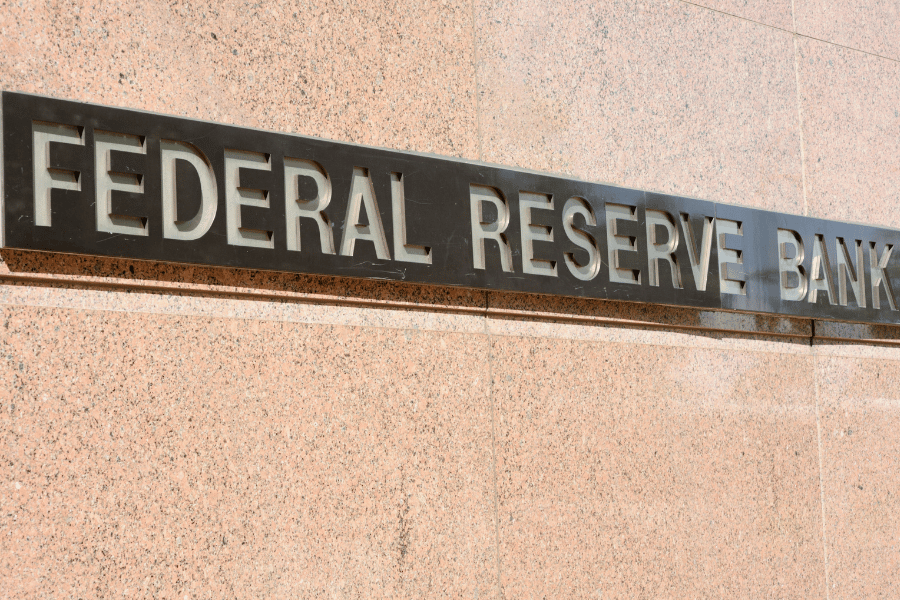
2. Does Interest Rates Affect Home Prices?
Interest rates have a direct impact on home prices. When the Federal Reserve increases interest rates, home buyers cannot afford expensive homes, causing prices to drop. On the other hand, when mortgage rates are low, buyers have more purchasing power, leading to a rise in home prices due to high supply and reduced demand.
However, as the housing market is constantly changing, the impact depends on the current market conditions. Fluctuations in home prices and the housing market are directly influenced by interest and mortgage rates. It is crucial to stay updated with the market to determine affordability for a mortgage and a home.
It's important to consider the impact of the Federal Reserve's interest rate decisions on the housing market. When interest rates are raised, home buyers may find it harder to afford expensive houses, causing home prices to drop. Conversely, when rates are low, buyers have more purchasing power, leading to an increase in home prices.
Considering your interest rate is more crucial if you plan to live in your home for more than five years, as you will be paying it for an extended period. It might be feasible to purchase a home at a lower price but with a higher interest rate if you can refinance the mortgage in the future to lower your rate.
3. Impact on the Housing Market
When interest rates are high or on the rise, the housing market will definitely slow down. As rates increase, the cost of owning a home becomes prohibitively expensive, leading to decreased demand for homes and a subsequent drop in home prices.
If banks increase rates to slow down the economy, they aim to drive down home prices due to inflation. Conversely, when rates fall, the cost of buying a home becomes more affordable, leading to a surge in demand and creating a bustling housing market. This increased demand will undoubtedly drive home prices up over time.
These rates have a significant and undeniable impact on the housing market. Depending on the rates, they clearly indicate to consumers how much they need to borrow to buy a home, wield influence on the value of real estate, and directly affect the demand and prices of houses. Since rates are constantly changing due to the economy, staying informed is absolutely crucial.

4. Are Home Buyers Impacted by Rates and Prices?
When purchasing a home, it's crucial to consider both interest rates and housing prices. High rates and prices can greatly impact first-time home buyers, making it necessary to carefully assess the market before making a decision.
The increase in interest rates has directly affected home affordability. According to the National Association of Home Builders, it is estimated that 103.5 million households are currently unable to afford the median price of a new home with a mortgage interest rate of 6.5%. Additionally, a $1,000 increase in the price of the median new home will force an additional 106,032 U.S. households out of the market.
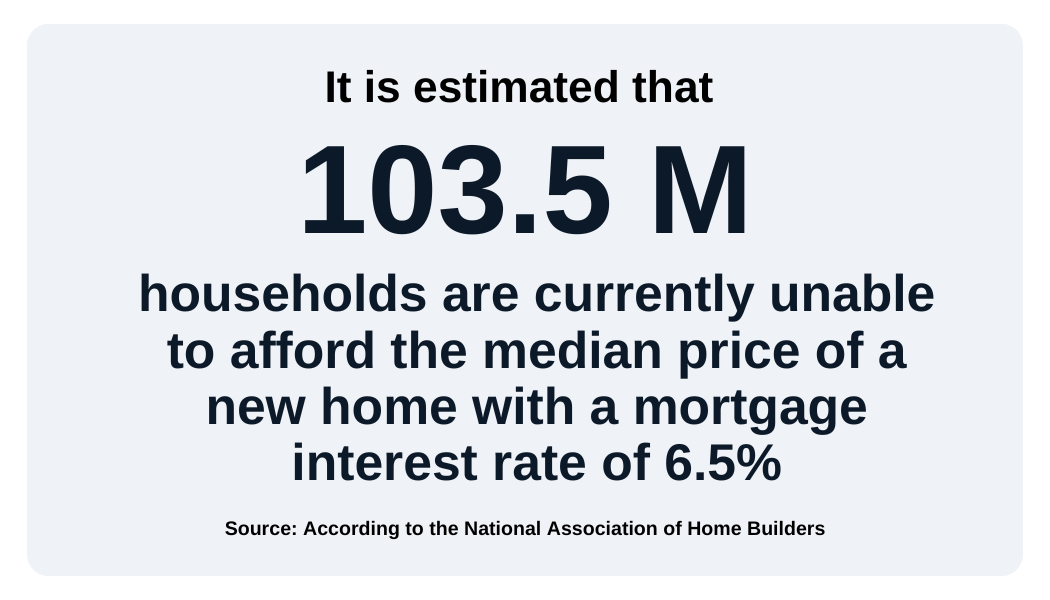
Evaluate home prices, interest rates, and mortgage details, such as down payments and monthly payments, to determine the best course of action.
Monthly Payment
The price of your home, your down payment, and the interest rates are all crucial factors that will directly impact the amount of your monthly payments. If you're buying a more expensive house, your payments will be higher, along with the interest rates. It's essential to keep these prices in mind when making your financial decisions.
Down Payment
The standard to avoid private mortgage insurance is to put down a 20% down payment when you are buying a home. As home prices start to increase, you will be required to make a larger down payment as well. If you can not afford the 20%, there are some tenders to accept others depending on the type of loan you have. Keep in mind that smaller down payments equal higher interest rates.
5. Housing Market Forecast 2024
In 2024, it's anticipated to be a favorable year for some to buy a home. While home prices will still be higher than usual, with intermittent increases, they are expected to stabilize in most areas. Economists are confident that the Fed will reduce rates, which will impact mortgage rates and home prices.
The challenges of affordability will persist in 2024, much like the previous year. The robust demand and limited home inventory will continue to significantly impact house prices, although the lower rates will contribute to price stabilization.
A substantial number of homeowners purchased their homes at low interest rates and are resistant to selling due to soaring home prices, contributing to the likelihood of continued low inventory in 2024.
The housing stock has been at a historically low level, resulting in exorbitant prices, but there are promising indications of an upward trend, bolstered by declining mortgage rates and improved home-buying conditions.
6. Why Are Interest Rates Important to the Housing Market?
Interest rates are important to the housing market for several reasons. They can determine how much consumers will have to pay to borrow money to buy a property and influence the value of real estate. Low interest rates tend to increase demand for property, driving up prices, while high interest rates generally do the opposite.
Many factors influence interest rates and mortgage costs. Lenders will first consider the general cost of borrowing in the economy, which is based on the economy's estate and government monetary policy. Personal factors, such as credit history, income, and the size of the loan, also will come into play.
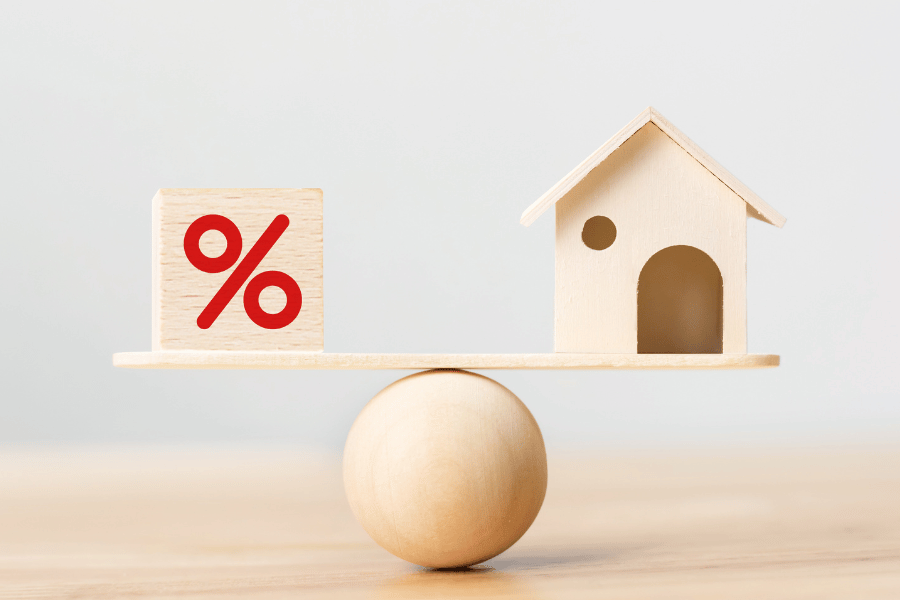
Record-low mortgage rates played a crucial role in driving the housing boom in 2020 and 2021. Many believe that they were the main factors accelerating the residential real estate market. Over the long term, home prices and sales tend to be resilient to increasing mortgage rates.
However, it's important to note that if mortgage rates continue to decline, it could create a new challenge. This is likely to attract new buyers to the market, exacerbating the ongoing shortage of homes for sale. The rates will have a significant impact on the housing market, both positively and negatively.
7. Interest Rates Vs. Home Prices History
The COVID-19 pandemic caused interest rates to drop to historic lows, but rates didn't stay that low. Mortgage rates have since gradually increased, but when you consider interest rates from a historical perspective, you will see that rates are still low by comparison, which means it is not necessarily best to rely on interest rates alone to determine whether buying is a good investment.
Below is a chart based on data from Freddie Mac to help see the changes in mortgage rates and the median sales prices of homes.
| Year | Rates | Median Sales Price |
| March 2002 | 7.14% | $188,700 |
| March 2012 | 4.08% | $238,400 |
| March 2022 | 4.42% | $408,100 |
| March 2023 | 6.32% | $436,800 |
However, one of the Federal Reserve's goals is to try to control inflation and keep it at a steady, low rate. As we have seen in the past years and months, if inflation rises significantly, the Fed may increase the federal funds rate to reduce the inflation rate.
Methodology
We used information and data from various sources to create a comprehensive guide on how interest rates impact purchasing decisions. We aggregated and analyzed multiple data sets to ascertain the influence of rates.
Those are some sources that we used to gather our information about interest rates affecting home buying.
FAQS
How do interest rates affect buying a house?
When the Federal Reserve raises interest rates, home buyers usually can not afford expensive houses so that prices will drop. If the rates tend to be lower, buyers will have more money to spend, so house prices will start to rise.
Will higher interest rates bring down house prices?
When interest rates are high and rising, the housing market tends to slow down. As interest rates increase, the cost of owning a home also becomes more expensive due to the higher interest rate, leading to reduced demand. This decrease in demand causes home prices to drop.
Will 2024 be a good year to buy a house?
The combination of high mortgage rates, steep home prices, and low inventory levels is set to make the 2024 housing market challenging for both sellers and buyers. Rates have cooled a little overall, and if that trend continues, some experts predict the market activity should heat up.
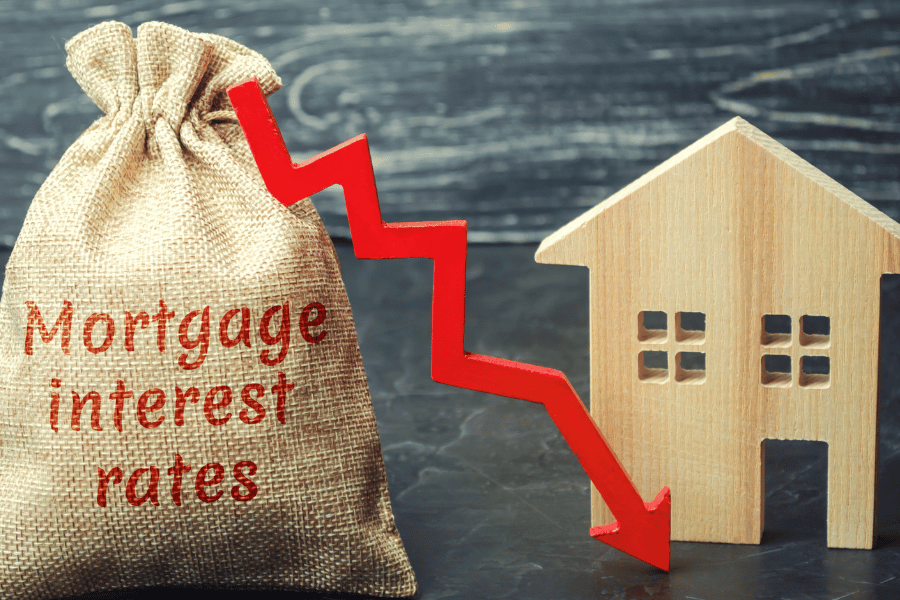
How Interest Rates Affect Home Buying - The Bottom Line
The ideal scenario is to buy a home when both interest rates and home prices are low, but that is not always possible. Considering the relationship between home prices and interest rates, prioritizing one over the other is not a good idea.
Your buying decision should always be based on your financial situation and priorities. Predicting the future of the real estate market is hard, even for experts. Some believe that high rates and an economic slowdown will force home prices to fall, while others think the opposite.
No matter what is happening in the real estate market, if you are thinking about buying a house or even selling, you should always work with a knowledgeable real estate agent to help you because they will give you insight into your local market and determine if you should buy or wait.
If you are considering moving or selling, contact us or visit our website. Our team at Raleigh Realty is here to help you with any home buying or selling needs.
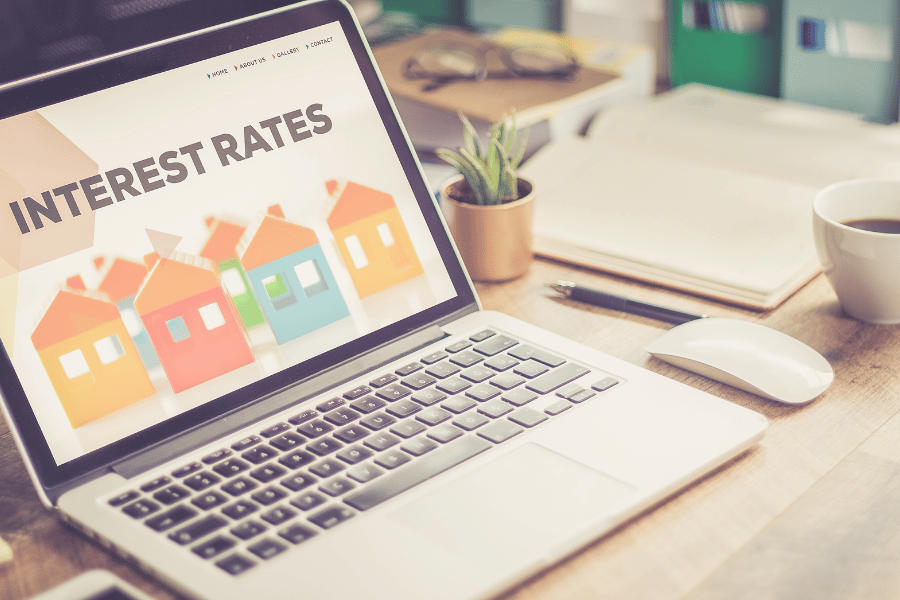
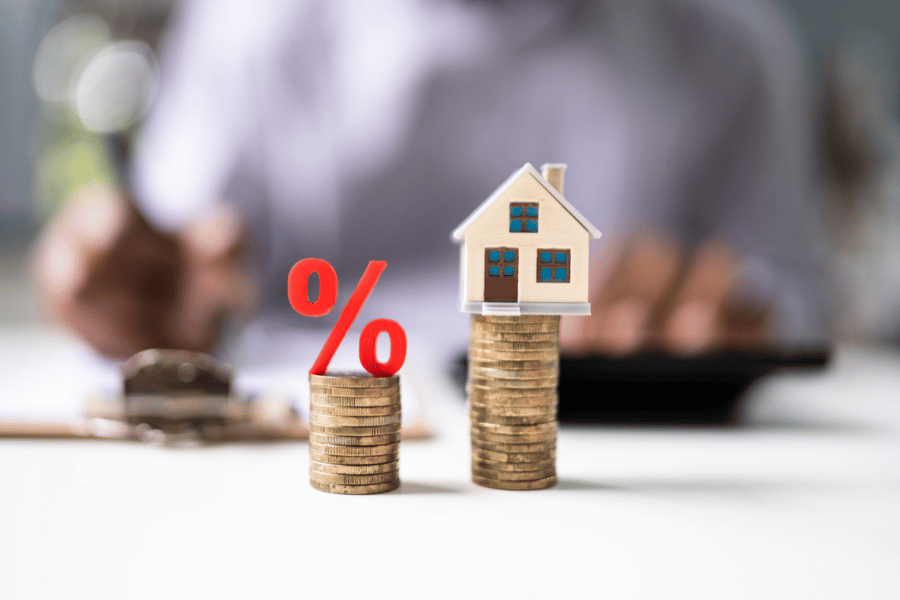
![North Carolina Mortgage Rates [2024]](https://images.agentloft.com/rr-images/uploads/rr-migrated/blogs/March2024/8ODOY5yVZtvdgRF6jZBz.png)
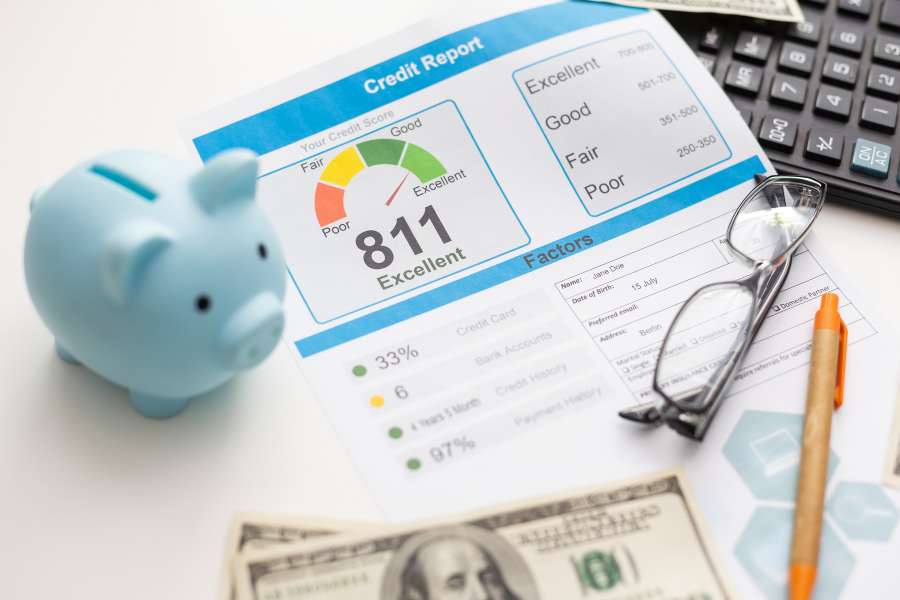
.png)